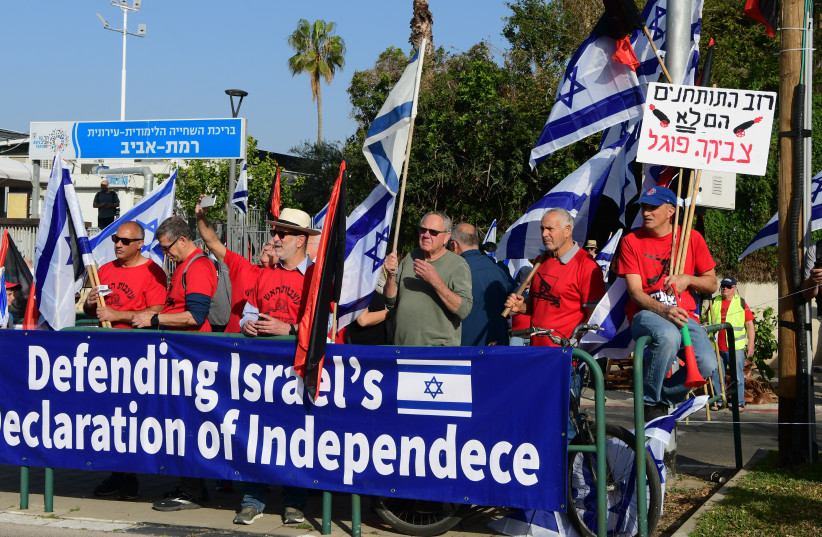In response to the ongoing judicial overhaul, many different interest groups, professional organizations and associations issued letters or joined protests against the legislation packages.
The most controversial anti-overhaul groups are military reservists and soldiers, which have restrictions on their roles in demonstrations.
Some military reservists, most notably pilots, have refused to attend training as a form of protest against the reforms. Some have argued that it is within their right to do so since they are volunteers.
How does IDF reservist duty work?
Starting at 18 – with some exceptions based on medical, social and religious considerations – Jewish, Druze, and Circassian Israelis are conscripted into the Israel Defense Forces. When they complete their mandatory service, the length of which depends on current standards and unit requirements, some veterans, such as infantrymen, become reservists until age 40 if they are still medically fit for service.
Those released or otherwise excused from reserve duty may still request to volunteer to serve as a reservist. According to the 1974 Security Service Regulations, the volunteer must sign a statement requesting to become one. They then undergo a medical assessment and have to be accepted by the Defense Ministry.

Once volunteers have been accepted, they can be called up for reserve duty, until they send another statement explicitly terminating their volunteering, or the period that they signed up for ends, whichever comes first.
Otherwise, volunteers are considered full reservists, according to the 2008 Reserve Service Law. Those who are part of the reserve service are under military legal jurisdiction.
Reservists are required to report for duty. If they don’t follow the summons “without sufficient justification,” the absence is seen as being away without leave (AWOL). According to the 2008 law, this can be punished with up to two years’ imprisonment.
While soldiers in their regular service haven’t yet gone AWOL as an act of political protest, this actually also is restricted. The 1955 Law of Military Jurisdiction lists up to three years as punishment for regular soldiers going AWOL, though unapproved absences are usually only punished with weeks or months in military prison.
Soldiers in active service have issued letters against the reforms, some calling for the right to protest.
According to a 2016 General Staff order, military personnel are not permitted to be part of political associations or engage in political demonstrations or any public activity of a partisan nature, including statements released to the public.
Soldiers may take part in non-political protests, but cannot do it wearing a uniform or during working hours. Some officers of the rank of lieutenant colonel or higher are forbidden from engaging in any such activity altogether.
The Association for Civil Rights in Israel sent a letter to the Military Advocate General (MAG) on January 24, arguing that soldiers have appealed to them asking to partake in the protests. The association argued that the demonstrations were about rule of law and morals, not politics, so soldiers have a right to participate.
